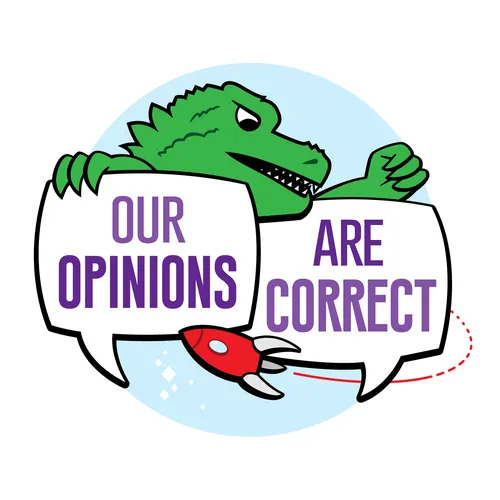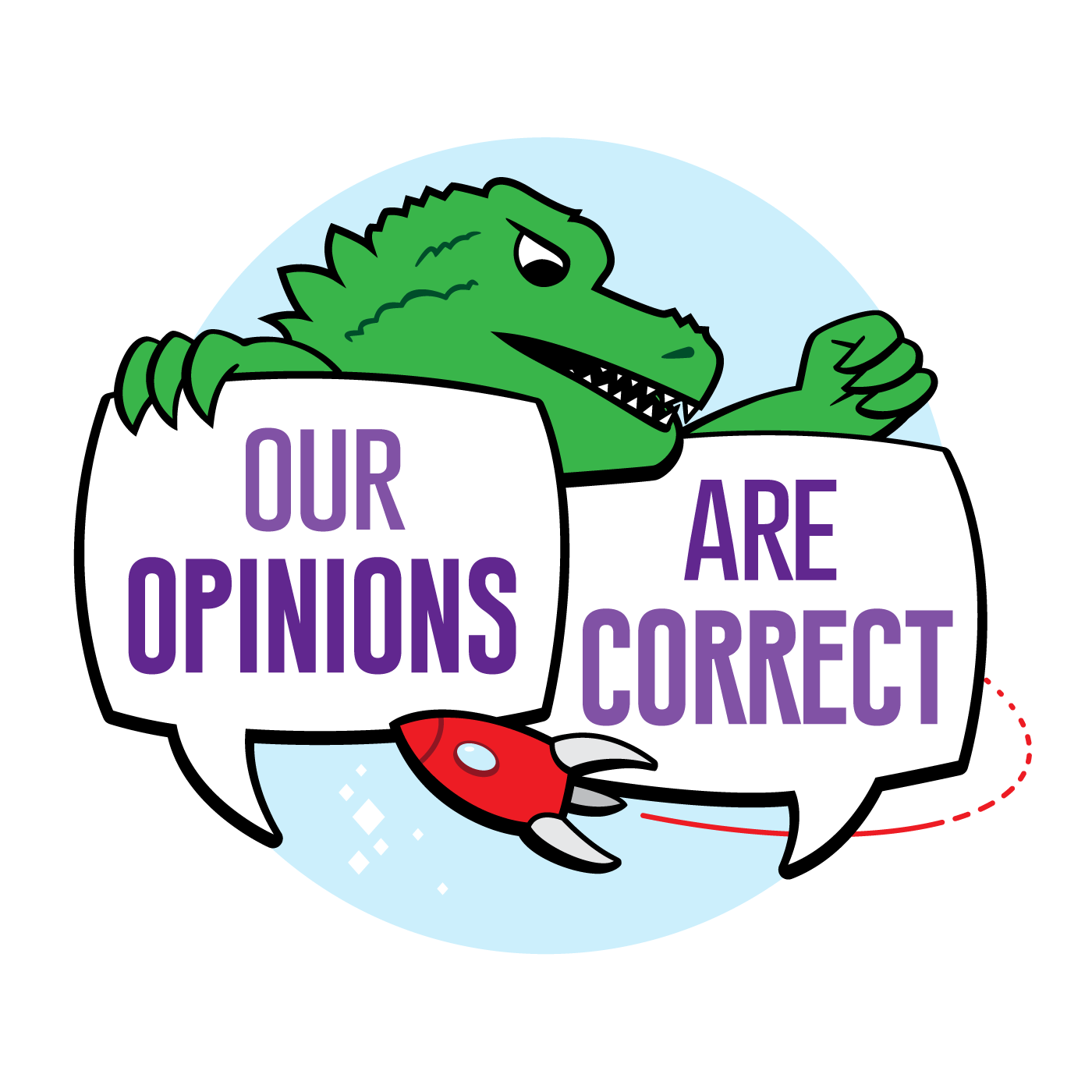
Our Opinions Are Correct
Explore the meaning of science fiction, and how it's relevant to real-life science and society. Your hosts are Annalee Newitz, a science journalist who writes science fiction, and Charlie Jane Anders, a science fiction writer who is obsessed with science. Every two weeks, we take deep dives into science fiction books, movies, television, and comics that will expand your mind -- and maybe change your life
- Update frequency
- every 13 days
- Average duration
- 45 minutes
- Episodes
- 204
- Years Active
- 2018 - 2025

Episode 44: What Killed the Terminator?
Terminator: Dark Fate barely made a dent in the world of pop culture, despite the fact that Terminator 2 changed the course of blockbuster cinema back in 1992. What made this series so electrifying i…

Episode 43: The Myth of Rugged Individualism
The idea of the "rugged individual" is all over the place in science fiction--especially in the United States. Who is this loner hero, and why are there so many stories about how personal freedom is …

Episode 42: It's time to stop quoting Clarke's Third Law
We've all heard Arthur C. Clarke's third law, which states that sufficiently advanced science is indistinguishable from magic. What did Clarke mean by this, and how are people using his law to take t…

Episode 41: The Multiverse Problem!
Multiverses are everywhere lately, from superheroes to fantasy novels. But there's one huge downside to multiple realities: you can’t change the past, and if you try, you just create a new universe. …

Episode 40: What is TV criticism, anyway?
People have a lot of opinions about what it means to have opinions about TV. Who is allowed to criticize TV, and how do you do it well? In this episode, we talk to TV critics Inkoo King (Slate) and N…

Episode 39: Monstrous Women and Women Who Make Monsters
Why do so many horror movies and stories feature terrifying women? Why do male creators treat female bodies and women's sexuality as intrinsically terrifying? And what happens when women get to creat…

Episode 38: The new anti-capitalist science fiction
There’s been a renaissance of anti-capitalist stories in science fiction and fantasy in the U.S. But these aren't tales of violent revolution or faceless corporations. We discuss Utopia, community, a…

Episode 37: The history of Afro-futurism
Afro-futurism is on the rise again, thanks to the popularity of movies like Black Panther, and creators such as Janelle Monae and N.K. Jemisin. But Black-centered futurism has a long history in the U…

Episode 36: The Laws of the Future!
Real-world law is becoming science fictional. We talk about the future of surveillance and digital policing with guest Cyrus Farivar, a journalist who covers law and technology for NBC News. He's als…

Episode 35: When science fiction gets censored
There's nothing quite so dystopian as censorship: the suppression of knowledge, or works of art, that challenge the ruling order. We look at how science fiction, fantasy and horror have been censored…

Episode 34: How to Write a Good Ending
Everybody knows that endings are hard, and we all love to complain about the way our favorite TV show or movie ended. But with both Game of Thrones and the Avengers movies coming to an end, this is a…

Episode 33: Science fiction explains our messed-up economy
We talk to economist Noah Smith about how different theories of economics show up in science fiction -- and how economics is also an exercise in speculative worldbuilding. How do ideas about "rationa…

Episode 32: You're doing camp wrong!
Lately the camp-themed Met Gala got us talking about camp again. What is camp? And how is it different in 2019 than in 1969? And most importantly, why is science fiction so deathly terrified of seemi…

Episode 31: Getting out of the Utopia/dystopia binary
We're living in an age of dystopian stories, while real-life social issues are getting pretty dystopian too. What's the point of telling dark stories in a dark time? Also, we discuss how Utopian stor…

Episode 30: Social media must die!
Social media has become one of the biggest problems of our time. How does science fiction deal with the rise of social networks---and how is this different from the way the real-life news media talks…

Episode 29: Real talk about the end of the universe
For our first-ever live podcast, recorded in March on the JoCo Cruise, we talked to cosmologist Katie Mack about how the universe will end. Will it be heat death or vacuum decay? We also talk about h…

Episode 28: What's the Matter With Westeros?
Game of Thrones comes back in a couple of weeks, so we're thinking about the politics of George R.R. Martin's fantasy world. What would a satisfying ending to this show look like? Can our heroes defe…

Episode 27: The future of futurism
Is there a way to predict the future accurately, using data and science? In this episode, we talk to Rose Eveleth, host of the Flash Forward podcast, about the idea of futurism. We explore its histor…

Episode 26: The Bomb is back
Back during the Cold War era, we were awash in stories about nuclear armageddon: either living through it, or trying to prevent it. And now, experts say the threat of nuclear holocaust is the worst i…

Episode 25: Peering into the deep future of humanity
A lot of science fiction takes place in the near future, somewhere in the next century or so. But what about the far future in 10,000 years, or a million? How do writers and creators imagine deep tim…